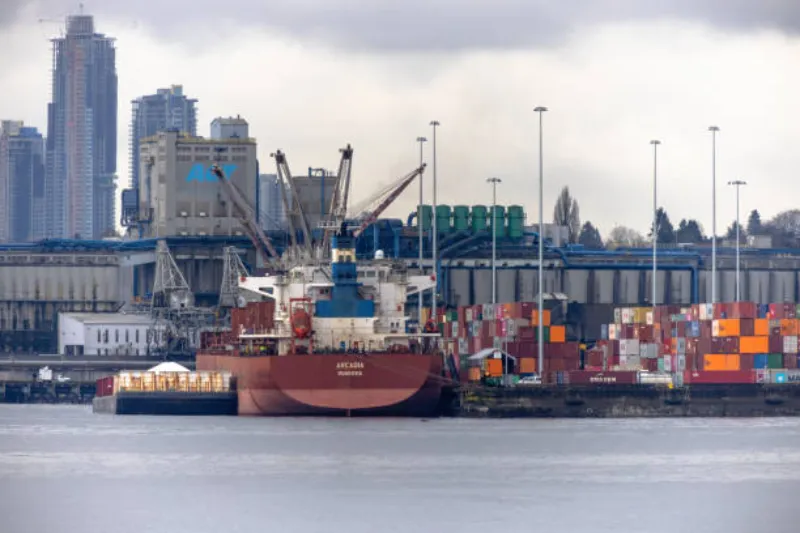Navigating the complexities of maritime law while recovering from an injury can feel overwhelming. That’s why having a longshore workers’ injury attorney is crucial.
The legal experts at LTHZ Law specialize in the Longshore and Harbor Workers' Compensation Act (LHWCA), offering guidance to injured maritime workers. From understanding your rights to securing workers’ compensation, we ensure you’re supported every step of the way.
Whether you’re a dockworker, shipbuilder, or harbor construction worker, the LHWCA safeguards your rights and provides essential benefits for workplace injuries. Consulting a specialized attorney not only simplifies the process but also ensures you receive the protection and compensation you deserve.

The Longshore and Harbor Workers' Compensation Act (LHWCA) is a federal law that ensures compensation and medical care for maritime employees injured during the course of their employment. It serves as a lifeline for those working in high-risk environments, offering financial support and medical care while they recover.
This law is distinct from state-level workers' compensation programs, as it specifically addresses injuries and occupational illnesses sustained in maritime settings. From the bustling docks to shipyards, the LHWCA provides a safety net for employees facing the unique hazards of their work environments.
The LHWCA offers coverage to a specific group of workers involved in maritime industries. Eligible individuals include:
However, it’s important to note that certain groups, such as seamen covered under the Jones Act or clerical staff, are excluded from LHWCA coverage. Understanding whether you qualify under this law is a critical first step, and a Longshore Workers Injury Attorney can help clarify your eligibility.
The LHWCA doesn’t just cover injuries resulting from sudden accidents like slips, falls, or equipment malfunctions. It also addresses occupational illnesses that develop over time due to workplace conditions. Examples of injuries and illnesses include:
Understanding what constitutes a compensable injury under the LHWCA can be challenging without legal guidance.
Under the LHWCA, injured workers may receive the following benefits:
Knowing the full extent of your entitlements ensures you’re not leaving benefits on the table.
Why do you need a longshore workers' injury attorney? Navigating the intricacies of the LHWCA can be overwhelming.An experienced attorney at LTHZ Law ensures that your claim is filed correctly, disputes are resolved efficiently, will not be denied of claim, and you receive the maximum benefits you deserve. They act as your advocate, fighting back against insurers who may attempt to minimize your claim.

After sustaining an injury, your first step should be to report the incident to your employer. Accurate documentation is vital for establishing your claim. Seek medical treatment immediately, even if the injury seems minor, as untreated injuries can worsen over time.
Once your employer is notified, they should file a claim with their workers’ compensation insurer. This claim will initiate the process of determining your eligibility for benefits under the LHWCA.
Unfortunately, the claims process isn’t always smooth sailing. Common issues include disputes over the extent of injuries, delays in approving medical treatment, and attempts by insurers to undervalue claims.
An experienced attorney at LTHZ Law can address these challenges head-on, ensuring your rights are protected.
While the LHWCA is a specialized form of workers’ compensation, it shares similarities with state programs. Both systems provide financial and medical support to injured workers, though the LHWCA is tailored to the maritime industry.
Eligibility for workers' compensation benefits generally hinges on whether the injury occurred during the course of employment. Maritime workers must demonstrate that their injury occurred in navigable waters or adjoining areas like docks or terminals.
Filing a claim involves submitting detailed documentation, including medical records and incident reports. Precision and thoroughness are key, as incomplete or inaccurate information can delay the process.
Leep, Tescher, Helfman, and Zanze (LTHZ Law) are dedicated to fighting for the rights of injured workers in Redding, CA and surrounding areas. Building upon a long legacy of service, their roots trace back to Ben Leep and Skip Tescher, who began practicing law together decades ago.
Today, LTHZ Law remains committed to protecting injured workers. Our expertise in the LHWCA and deep understanding of maritime law ensure that every client receives the representation they deserve. Contact us today or fill out our client forms and take the first step toward securing your future.